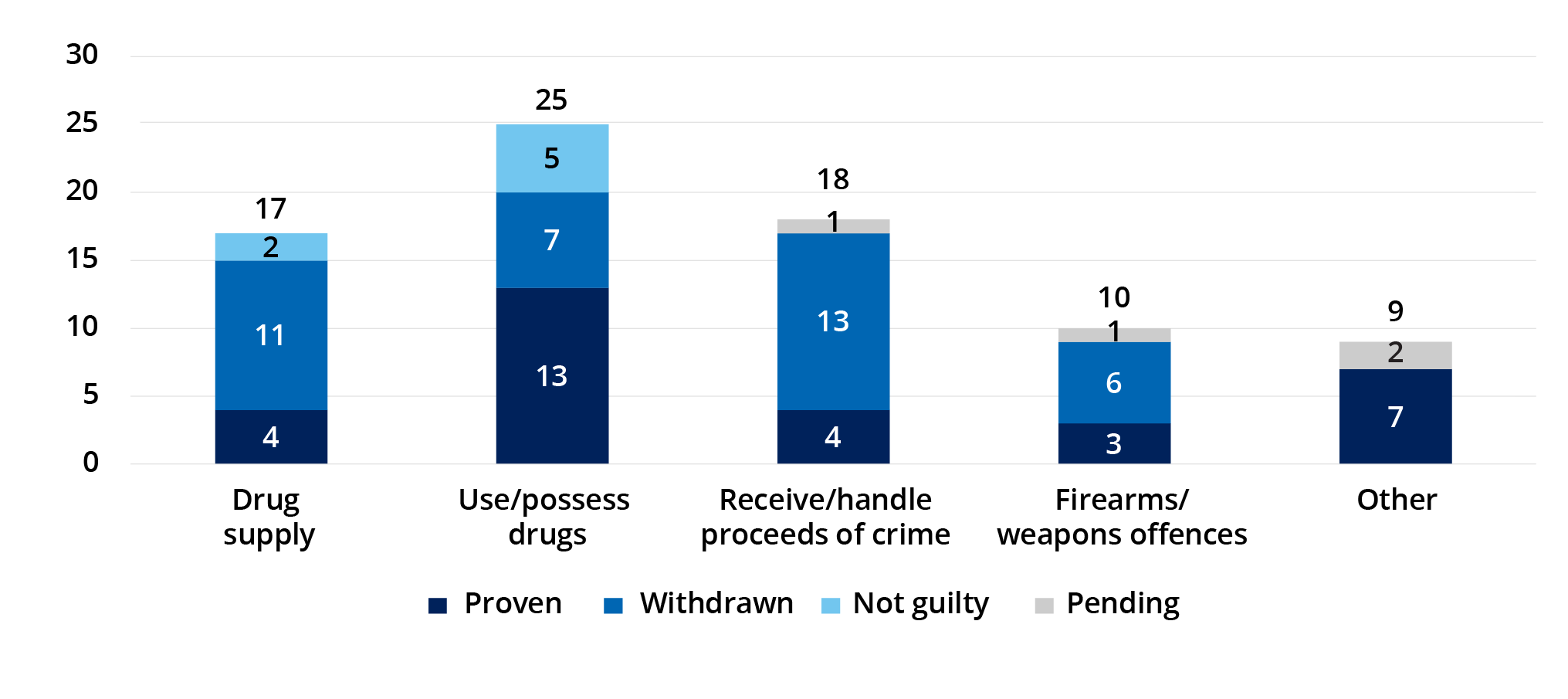Automatic language translation
Our website uses an automatic service to translate our content into different languages. These translations should be used as a guide only. See our Accessibility page for further information.
The scheme allowed police to apply for an order granting them warrantless search powers over a person. Orders could be made against any adult with a prior serious drug conviction, if police believed they were likely to manufacture or supply prohibited drugs.
The pilot scheme aimed to:
The pilot ended in May 2024, after which all orders ceased to apply.
This study reviews the implementation of the pilot scheme. Police administrative data were used to examine scheme operations, including DSPO application processes and police actions initiated under the scheme.
To gauge the appropriateness and effectiveness of these operations, 17 interviews with key stakeholders were conducted and thematically analysed. Stakeholders included Authorised Magistrates, specialist police staff, and the DSPO Independent Oversight Commissioner.
During the scheme’s two-year pilot, police made 27 applications for DSPOs. Of these, 15 were granted and 12 resulted in at least one search. A total of 58 DSPO searches were conducted (25 premise, 21 person, and 12 vehicle searches). While only one in five searches (n=12) resulted in criminal charges, a total of 79 charges were laid against nine people.
Figure 1 breaks these charges down by offence type and court outcomes. Around one fifth of all charges were for drug supply. The remaining charges included drug use/possession (32%), receiving or handling the proceeds of crime (23%) and firearm/weapons offences (13%). Of the 79 charges, nearly half were withdrawn, and around 40% were proven in court. Most proven charges were for drug use/possession. Only four of the 17 charges for drug supply were proven.

Most stakeholders interviewed agreed that the scheme’s eligibility criteria were applied appropriately, and that the legislative framework was adequate. However, several implementation issues were identified which may explain the low number of DSPO applications and enforcement outcomes. These related to the geographical restrictions of the trial, overlap with other schemes (such as the Firearms Prohibition Order scheme), and procedural delay in the application and review process. Additionally, several stakeholders raised issue with the lack of clarity regarding the scheme’s purpose and intended targets.
While only a small number of orders were granted and convictions secured during the pilot, most stakeholders believed that the DSPO scheme was operating as intended. Modifications could be made to the scheme to increase the efficiency of the application process and effectiveness of order enforcement. There is insufficient evidence from the pilot to determine whether DSPOs had a meaningful impact on drug supply and manufacture in NSW.
Last updated: